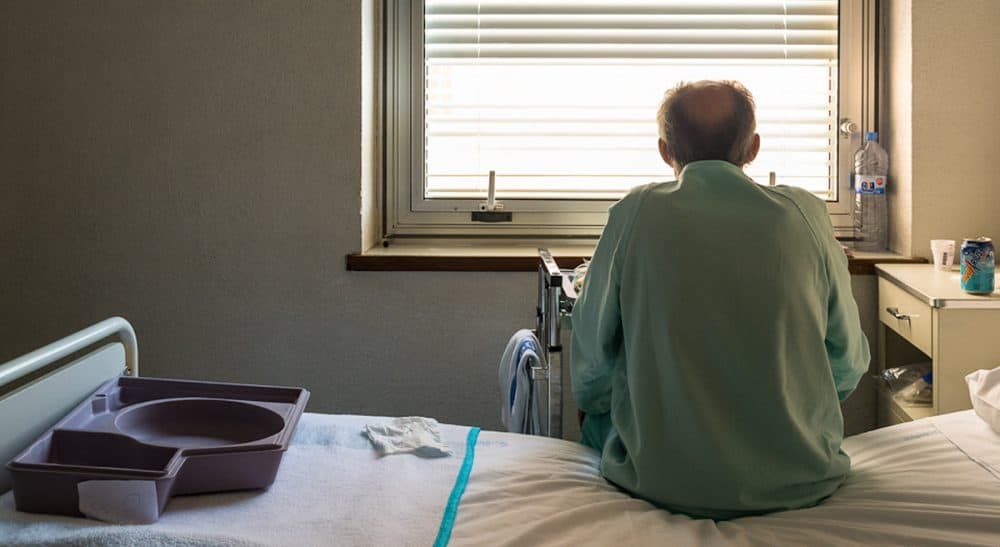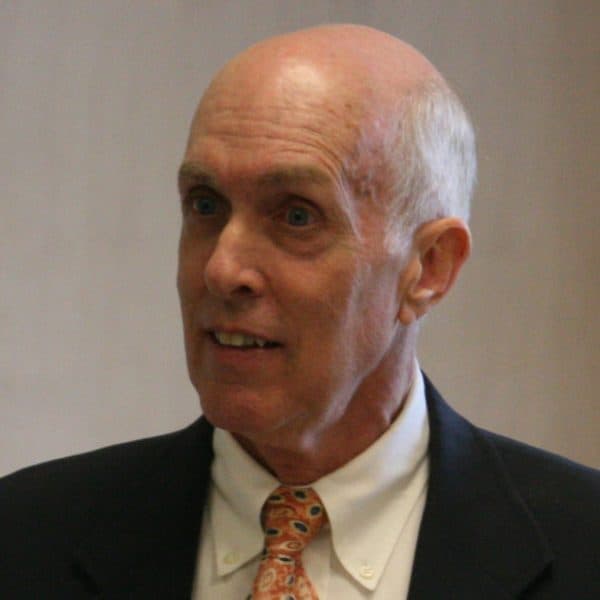Advertisement
Who Wants To Die? Not Me — But Can We At Least Talk About It?

“Are you already enrolled in Medicare?” the customer service representative asked.
“No,” I said, “I turn 65 in April. Alas.”
“Well,” he said, “consider the alternative.”
I’m not certain when small-talk banter started to include a suggestion to "consider the alternative," but since I passed the six decade mark, I know it has become more common.
“I sleep so poorly now.”
Well, consider the alternative.
“I’ve gotten so slow on the squash court.”
Propriety expects us to want to stay alive at all costs. Any talk about alternatives to suffering -- suicide, death with dignity, euthanasia -- is considered almost obscene.
Well, consider the alternative.
The first alternatives that leap to mind are sleeping well at night and regaining my speed on the squash court, but, of course, those are not the alternatives implied. Death, it is suggested, is worse than lying awake all night or lumbering about the court in the shadow of your former self.
Well, the truth is that I do consider the alternative, quite a bit. It’s difficult not to when you see and read about all the dimly lit ways to dusty death — dementia, pain, helplessness, incontinence, immobility, indignity, forgetfulness. Is living with the litany of loss and suffering that ends in death somehow preferable to ducking out a side exit just before that long corridor? Questions like this seem to embarrass or scare us so much that we resist even discussing them.
A couple of years ago, I began to notice the growing ubiquity of defibrillating paddles. Some public buildings have them mounted to the walls so that passersby can jolt us back to life in the event of a heart attack. The thought of being revived so that I can die again later terrifies me. I’m not interested in returning to the miracles of being cut up or irradiated so that I can live a reduced life and die again later. I want to die only once; that will be plenty I think. So I made an appointment with my doctor to discuss how to get a “do not resuscitate” order. Although he helped me get the DNR bracelet, the discussion made him uncomfortable.
Advertisement
Propriety expects us to want to stay alive at all costs. Any talk about alternatives to suffering — suicide, death with dignity, euthanasia — is considered almost obscene. We assign it the face of Dr. Kevorkian and lock it in prison. We seem reluctant to imagine physical or psychological suffering so great that death is a reasonable release.
Let me be absolutely clear: I have no interest in dying. I love life. When my time is up and I must die, I imagine I’ll react like everyone else: I will not want to depart, and I will be frightened. But, unless death surprises me and snaps me up like a frog snagging a fly, I want the freedom to choose how and when I go. Living wills and overly regulated assisted-suicide laws miss the point. I imagine only a brief window of lucidity between the freedom to act and the prison to which some incapacitating disease consigns me, making my exit so much more difficult and protracted. I’d prefer a gentle, painless fade to black over a lingering agony, especially when that agony is likely also to devour the people I love and drain the funds that should go to support my wife.
It seems that the grief generated even by the thought of death prevents us from considering the feelings and needs of the dying.
When I try to discuss this sort of alternative, people become annoyed or angry. They say that this option is selfish, inconsiderate of the feelings and needs of those left behind. It seems that the grief generated even by the thought of death prevents us from considering the feelings and needs of the dying. We grieve mostly for an image of ourselves bereft of the one we love; we grieve for our loneliness, our loss.
Yet at the funeral we say, “It’s a blessing she died because she suffered for so long.” We ask for “a holy rest and peace at the last.” And we continue to weep for ourselves. So who is selfish? Perhaps the person in the coffin would have opted for peace a bit sooner if making that choice were more acceptable. We need to move beyond our embarrassment and anger and let people talk about death without the platitudes and panic.
Many will choose to live despite the suffering and hope for a miracle; they may want defibrillators and life support for as long as possible. And many others, like me, may want to know that we can end the suffering when we choose — before we need a living will that prolongs the suffering and dumps the responsibility on someone else. I want to hold on to my family and friends, but I don’t want them to hold on to me once I have become too ill for us to enjoy each other. I guess in the end, I don’t mind considering the alternative.
